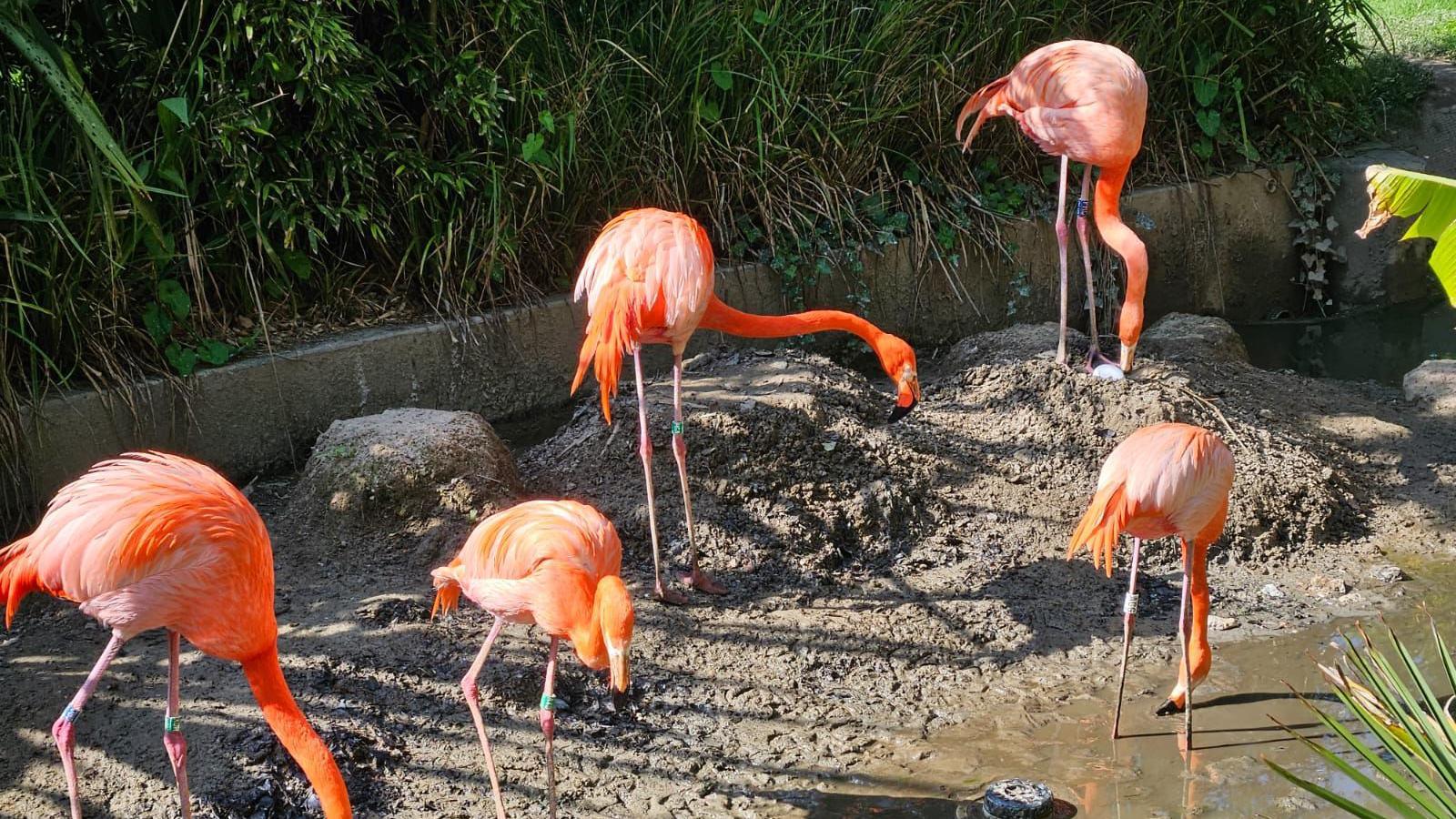Escaped flamingo doing 'extremely well' in France
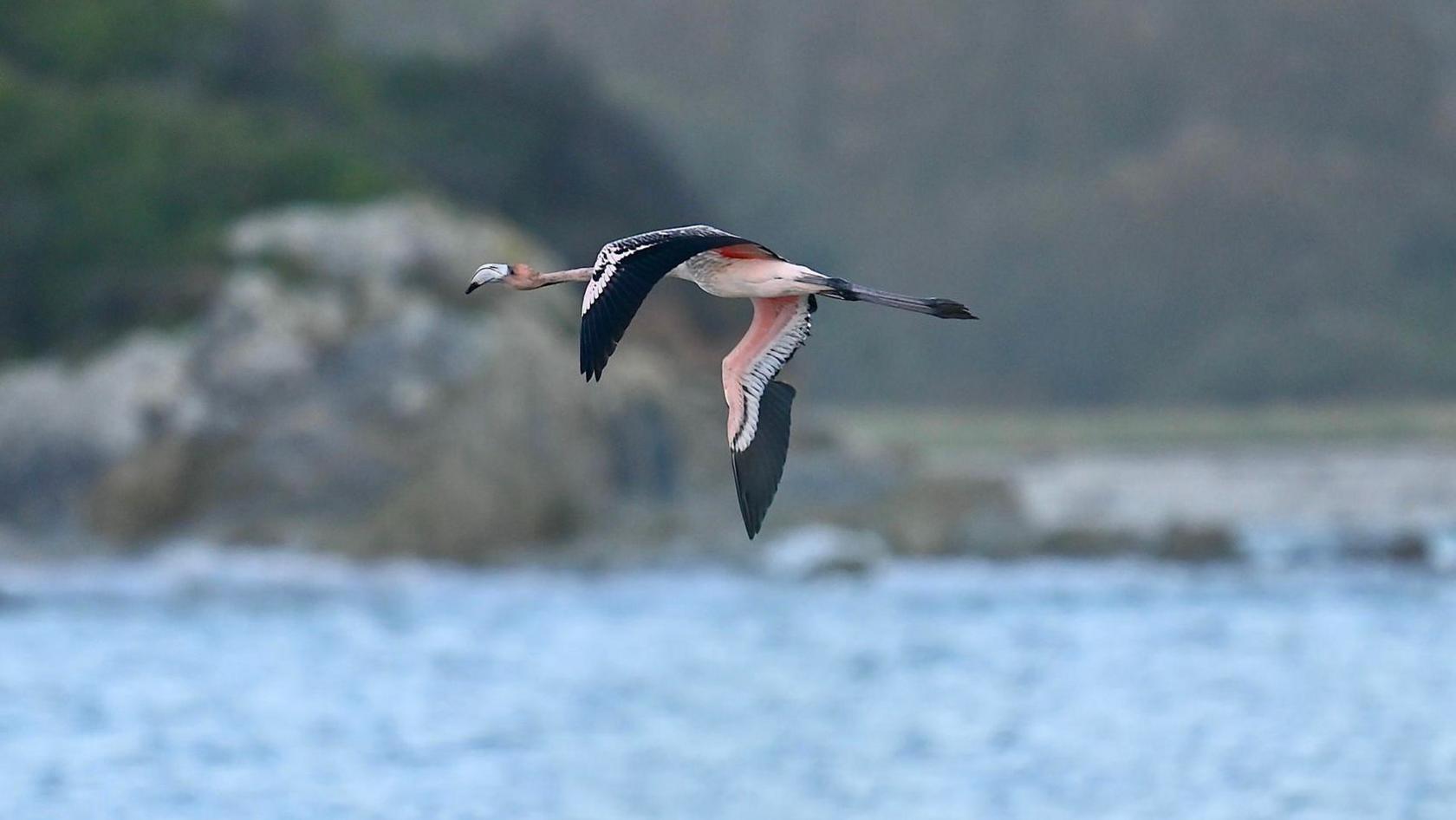
Frankie was first photographed in northern France on 9 November, a week after she escaped
- Published
A juvenile flamingo which escaped from a wildlife sanctuary more than a week ago is thought to be doing "extremely well" in the wild, keepers have said.
On 2 November Frankie escaped from Paradise Park Wildlife Sanctuary in Hayle, Cornwall, despite her feathers being clipped on one wing to prevent her from reaching full flight.
The escape prompted a search before the wading bird was eventually spotted in northern France - where she is thought to have settled.
David Woolcock, curator at the park, said staff were "devastated" when Frankie escaped but he felt relieved she had "shown the resilience and skills" to aid her as a wild flamingo.
Mr Woolcock said there were "numerous issues" with the idea of bringing Frankie back to the park, including avian influenza.
"If she were to be caught in France she would then need to be housed at a French institution to be health screened as part of the UK importation process," he said.
"But it is unlikely that [anyone] would agree to hold Frankie as she has been mixing with wild birds and may have been in contact with avian influenza infected birds.
"Avian influenza continues to be a major threat to wild birds and we hope that Frankie remains safe and healthy."
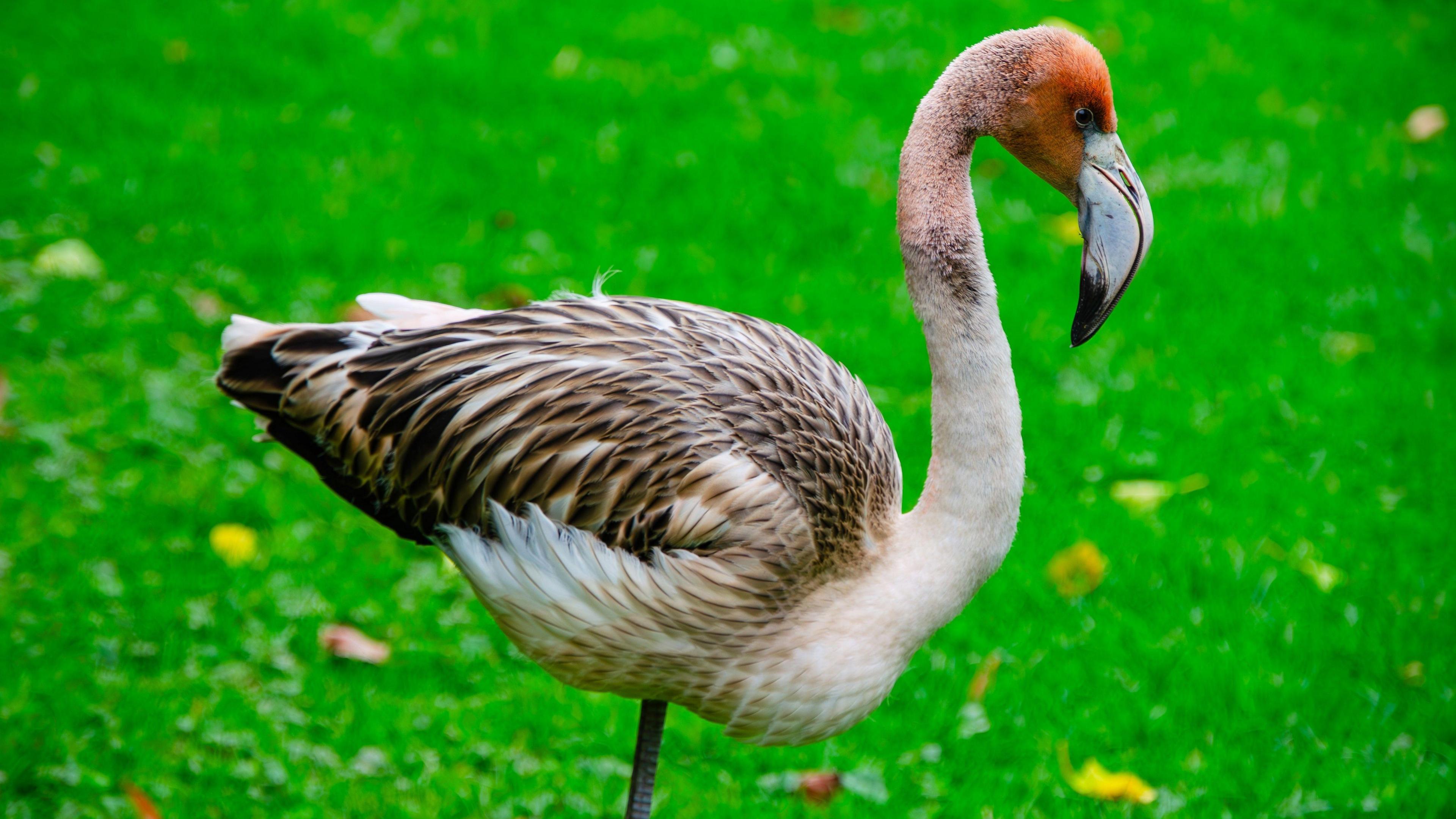
Staff at the park in Hayle said they were devastated after Frankie's disappearance
Mr Woolcock said there had been reports of "similar situations" where flamingos had lived "for many years and thrived", including in winter.
Frankie had her feathers clipped on one wing, a method used to prevent birds from reaching full flight, but Mr Woolcock said it usually inhibited the ability to take off, not necessarily the ability to fly once airborne.
Keepers said Frankie, who hatched in July, had become independent of her parents and was showing signs of flapping her wings while at the park.
From Cornwall to France
Mr Woolcock said: "We suspect that it was in just such an exercise period that Frankie was caught by a gust of wind which made her airborne.
"Then she was on her way."
Mr Woolcock said flamingos were "quite hardy creatures" and were known to fly hundreds of miles to cross continents.
He said the evidence park staff had seen of Frankie in France "shows a well-adjusted, well-fed bird, doing extremely well".
Follow BBC Cornwall on X, external, Facebook, external and Instagram, external. Send your story ideas to spotlight@bbc.co.uk, external.
- Published10 November
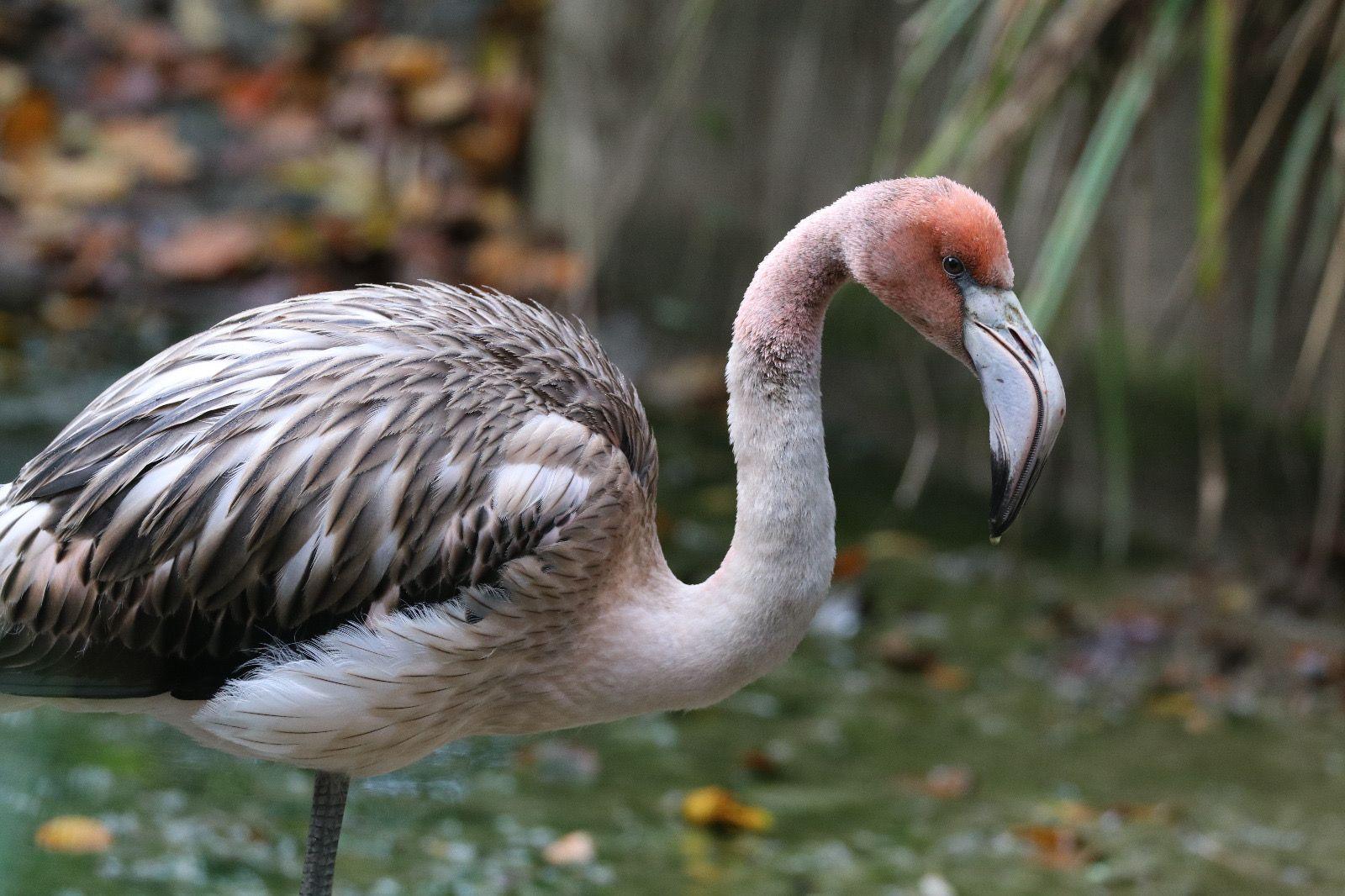
- Published4 November
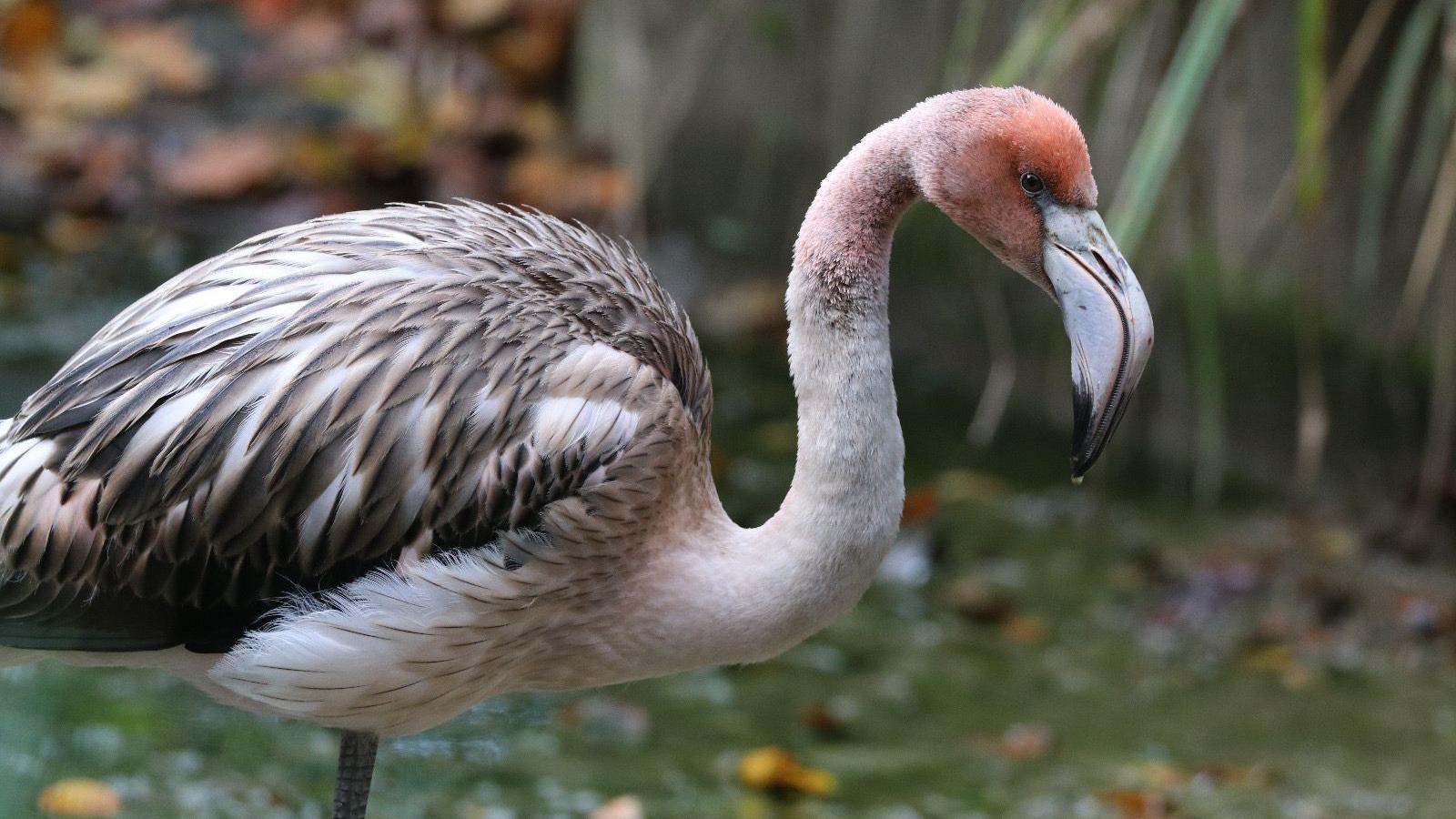
- Published3 November
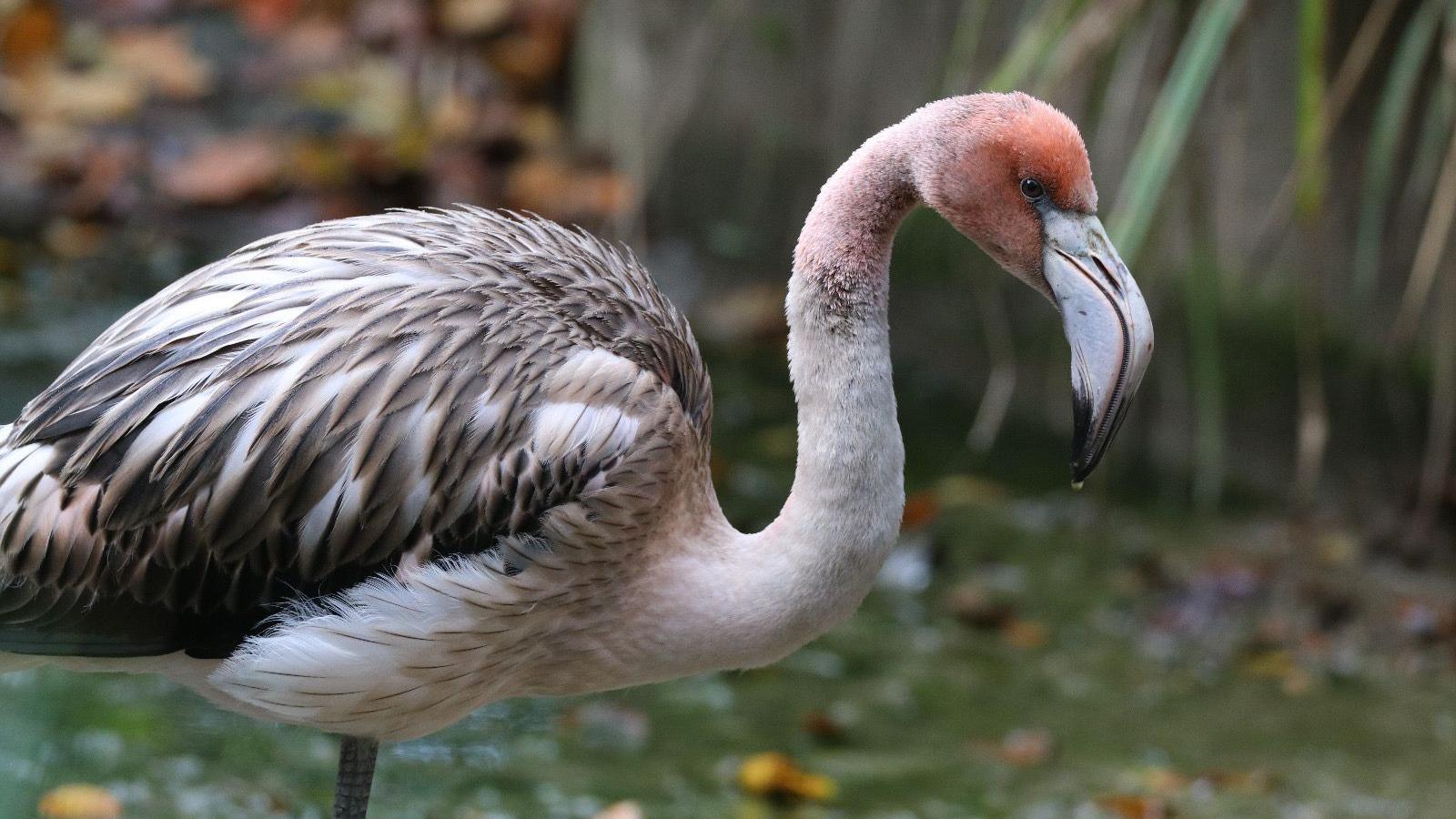
- Published2 November
